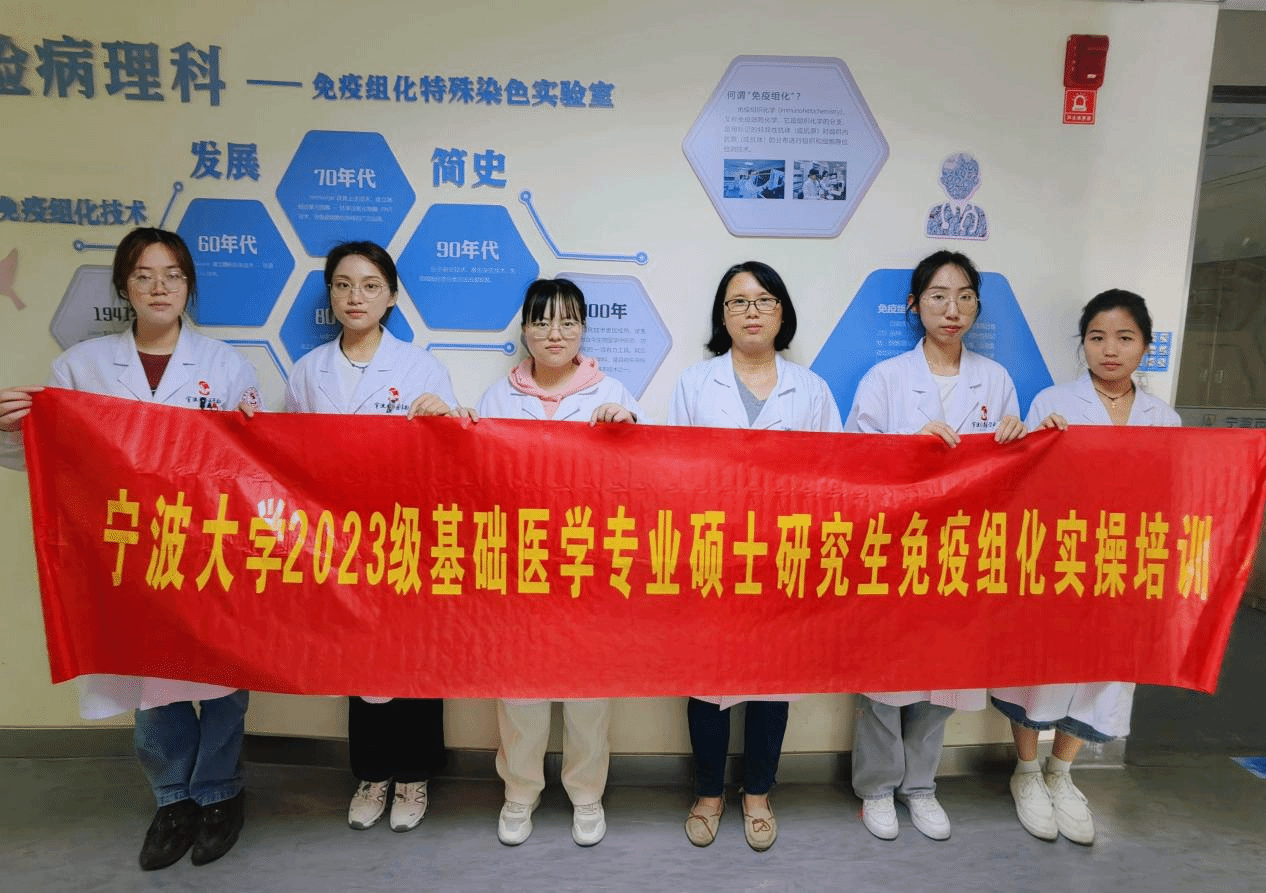To strengthen the practical ability training of graduate students, the School of Basic Medical Sciences at Ningbo University Health Science Center recently organized a one-week immunohistochemistry (IHC) hands-on training session for 19 master's students from the 2023 cohort majoring in basic medical science. They visited the Ningbo Clinical Pathology Diagnostic Center for this training opportunity.
The training covered various aspects including the basic principles of immunohistochemistry techniques, experimental operation procedures, result analysis, and clinical applications. During the training, experienced instructors from the Ningbo Clinical Pathology Diagnostic Center provided detailed step-by-step explanations and meticulous operational guidance to the graduate students. They emphasized key considerations in IHC experiments, such as proper handling and storage of samples, precise control of antibody dilution ratios, strict regulation of incubation time and temperature, and the use of appropriate positive and negative controls. The students also engaged in hands-on practice from sample preparation to final staining result analysis, systematically learning and mastering the entire process of IHC experiments.
Through this hands-on training, the graduate students not only mastered the basic operation process of immunohistochemistry but also gained an in-depth understanding of how to select appropriate antibodies, how to perform effective antigen retrieval, and how to evaluate staining results under a microscope. The students unanimously expressed that this training significantly improved their experimental skills and enhanced their understanding of experimental design and result analysis, which will be greatly beneficial for their future scientific research work.
It is known that the School of Basic Medical Sciences has always prioritized improving the quality of graduate education. Since the enrollment of the 2023 cohort of basic medical science graduate students, the school has implemented multiple measures, including organizing graduate student symposiums to discuss training programs, hosting "Frontiers in Basic Medical Science" forums to broaden academic horizons, establishing experimental skill training, and encouraging academic exchange systems, to ensure efficient and outstanding talent cultivation. In the future, the School of Basic Medical Sciences will continue to explore and implement more innovative training models, committed to cultivating more high-quality basic medical research talents to meet the development needs of the national healthcare industry.
